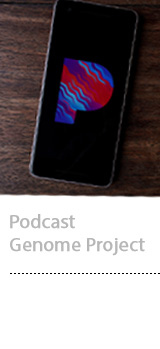
Pandora is making the podcast listening experience better for people and more monetizable for advertisers.
The streaming platform revealed the beta version of its Podcast Genome Project, a discovery algorithm that recommends podcast episodes to listeners, based on their habits and searches. The beta will roll out to 1% of Pandora’s user base Tuesday and open broadly to listeners in early December.
“Helping consumers easily find what podcasts to listen to – which touch on the areas they care about – is a problem no one has solved,” said Chris Philips, chief product officer at Pandora. “That’s the number one thing we’ve been going after.”
Like Pandora’s Music Genome Project, the Podcast Genome Project uses a combination of human and machine curation to classify podcasts according to over 1,500 attributes at the episode level. Humans vet the content by broad categories while algorithms analyze content more granularly using machine learning and natural language processing.
The Genome Project also aids discovery through search. Listeners searching for “True Crime,” for example, can surface relevant episodes beyond True Crime programs.
“We can surface, for example, episode 492 of ‘This American Life,’ if it was a true crime story,” Philips said. “The idea is that you open the app and we’ll have recommended podcasts for you all the time that are fresh.”
By upgrading the podcast experience, Pandora is betting it can grow its audience and time spent on its platform, which have both been slipping in recent quarters. It also hopes to gain a share of the growing podcast advertising market, which could hit $659 million by 2020, according to the IAB.
Pandora has been acquiring podcast content over the past year, including an exclusive partnership with “This American Life” and “Serial,” and exclusive rights to Questlove’s “Questlove Supreme” podcast. With the launch of the Genome Project, Pandora is adding content from WNYC, NPR, Wondery, Gimlet, The New York Times, Slate and more large publishers, as well as Libsyn, which aggregates smaller, long-tail podcasts, to its platform.
Today, over half of all podcast listening takes place on Apple’s podcast app, which is notoriously poor at suggesting new content. Apple also only shares an aggregate picture of listening behavior on its platform with publishers and brands, leaving advertisers to wonder if their impressions delivered.
“Podcasts are a black box,” Philips said. “[Lack of] measurement, audience, time spent and the content itself have all made it difficult for advertisers to confidently spend money.”
But, because Pandora hosts and serves podcasts as on-demand streams, it can offer advertisers the same targeting and measurement they get on its music platform, such as the ability to know who a listener is, what kind of content they prefer, where they tune in and drop off and whether they heard a specific ad.
“We’ll use all of that information to help sell ads,” Philips said.
Pandora will also offer dynamic ad insertion through AdsWizz, the audio ad tech platform it purchased in March, to keep advertising relevant and fresh as more episodes have an opportunity to be discovered. Pandora eventually hopes to rep ad sales for creators on its platform, Philips said.
“We’re going to let publishers see the power of our ad tech and insights,” he said, “and we believe over time they will allow us to do it for them because they’ll see we can do it better.”
The platform will package its podcast inventory with display, video and audio as the product gains scale.
Pandora, which is in talks to be acquired by radio subscription giant Sirius XM for $3.5 billion, sees opportunities to work with its potential future parent company to expand spoken-word content down the road.
“Keep an eye on the content side,” Philips said. “That’s a big part of the road map.”
This post was syndicated from Ad Exchanger.


More Stories
McDonald’s NZ launches That’s how we Macca’s campaign celebrating Kiwi connections
From Burger King to Bumble, These Brands are Currently Without a CMO
Daylight welcomes new Art Director